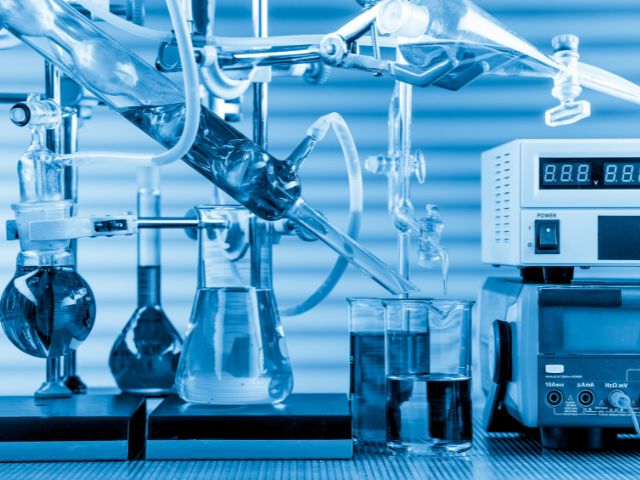

Laboratories can be notorious for using excessive energy and producing an exceptional amount of waste. If you want to make your scientific lab more eco-conscious, we’ll show you how with some simple strategies and tips.
Reducing energy consumption is one of the simplest and most effective ways to make a scientific laboratory more environmentally friendly. Due to the number of machines operating 24-7 (like refrigerators, for example), labs use an incredible amount of energy daily.
While some of this energy usage is inevitable, there are many ways that labs can reduce their energy consumption to make the workplace more efficient and sustainable. Labs should consider turning off and unplugging any equipment not in use, turning off lights when not in use, and training staff in optimal energy use practices for the lab and machines.
Another way to make a scientific lab more eco-conscious is to buy refurbished rather than brand-new equipment. Lab equipment manufacturing requires a lot of materials and energy, but too often, machines are thrown out or scrapped after just a few years of service in favor of new devices.
By buying used instruments and machines, labs can cut down on the resources needed to manufacture new ones and reduce the waste generated by scrapping lab materials. Plus, there are plenty of other good reasons to invest in used lab equipment, like saving money!
Labs are also known for producing an exceptional amount of waste, particularly plastic. Unfortunately, plastic waste is a considerable problem these days as single-use plastics populate our oceans and overwhelm landfills everywhere.
Many labs must often use single-use plastics like pipettes and gloves, but there are ways these facilities can implement eco-conscious strategies to curb their plastic usage. Switching from plastic to glass instruments and supplies when able is a great start, and requesting less packaging from suppliers is another helpful option. Even these small reductions can significantly decrease a lab’s plastic waste over months and years.
Being an eco-conscious lab isn’t just about turning off the lights and using glass materials; it’s also about incorporating a culture of sustainability. If not everyone buys into the eco-conscious culture of the lab, all of these tips and strategies won’t be of much use.
Building a culture of sustainability in a lab isn’t easy. It requires leaders in the workplace to set the example and possibly incentivize employees into enacting personal eco-conscious strategies. This won’t happen overnight, but if you commit to creating the culture, the lab and all employees will eventually follow your example, and sustainability will become a fundamental aspect of the lab.
24World Media does not take any responsibility of the information you see on this page. The content this page contains is from independent third-party content provider. If you have any concerns regarding the content, please free to write us here: contact@24worldmedia.com
